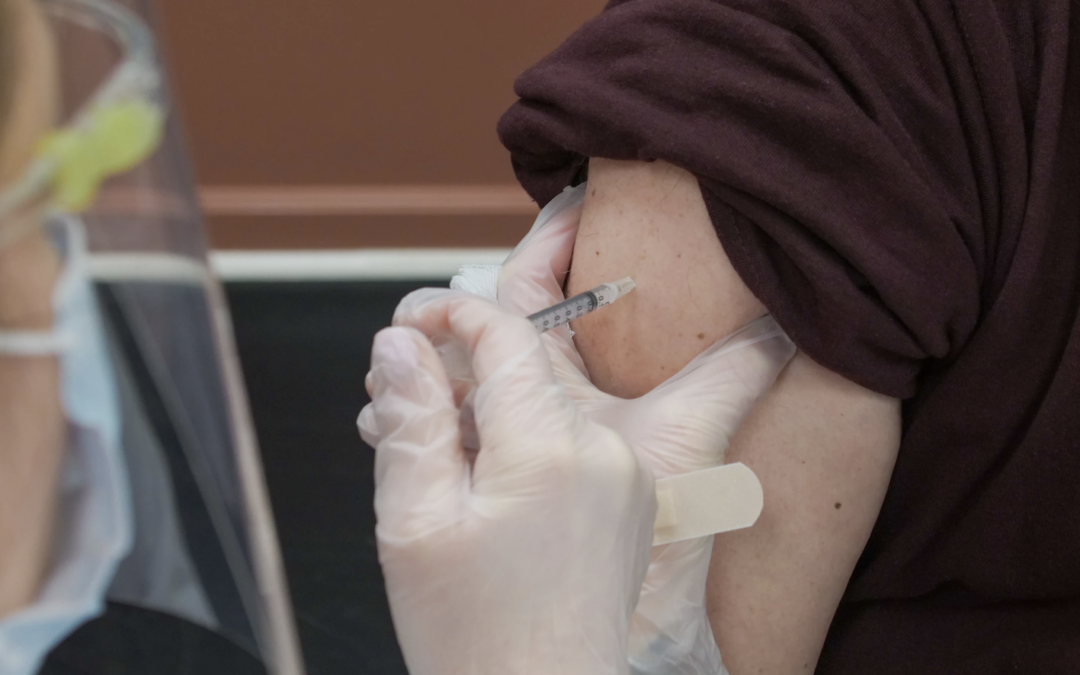- Having obesity makes you eligible for an early COVID-19 vaccine in several states.
- Evidence shows it can be a major risk for more severe viral infection and complications.
- But weight stigma can sometimes make it difficult for people with obesity to access care.
As countries continues efforts to vaccinate Americans against COVID-19, people with underlying health conditions are being moved to the front of the queue.
Obesity is currently one of those qualifying conditions.
That’s because having a body mass index (BMI) above 30, the cut-off line for obesity, is considered to be a risk factor for severe coronavirus complications, according to the Centers for Disease Control and Prevention.
Unlike other chronic conditions such as diabetes or cancer, obesity comes with a social stigma which can prompt poorer care, even from healthcare providers. The stigma can also cause people to delay medical treatment.
In some cases, people with obesity might not even realize they can get an early vaccine. They may be aware their weight is a health risk, but don’t know their exact BMI.
While BMI is an imperfect measure of health, over 40% of US adults have obesity. That’s an estimated 78 million people, so it’s worth checking your BMI to see if you qualify.
How to know if your BMI grants you access to a vaccine
Your BMI is determined by body weight relative to height, and you can calculate it on the CDC website (or if you like math, take your weight in pounds, divide by your height in inches twice, and multiply that total by 703).
A number between 25 and 29.9 is considered to be overweight, 30 and above is considered having obesity, and 40+ is categorized as having severe obesity.
Obesity is a known risk factor for COVID-19 complications
Obesity is linked to more severe COVID-19 cases, as well as a higher risk of complications.
A recent report from the World Obesity Federation found that 88% of coronavirus deaths have occurred in countries where a majority of the population has overweight or obesity. Countries with lower levels of obesity also had fewer COVID-19 deaths. While higher weight isn’t directly implicated in those deaths, these data support prior links between obesity and the risk of severe COVID-19 infection.
In April, researchers found that obesity was the most significant chronic risk factor for hospitalization among coronavirus patients. Evidence has also found that when a a person has obesity and COVID-19 simultaneously, a higher BMI means they’re more likely to die from complications of the virus.
Obesity is also more common among Black and Hispanic Americans, which data show tend to be disproportionately affected by COVID-19.
With all the research suggesting people with obesity are high-risk, it’s surprising that more states aren’t making it a priority for early vaccine access.
“With the call to follow the science, I’m very curious if there’s a small amount of hypocrisy when we don’t follow the evidence in prioritizing people who have obesity in distributing the vaccine.
BMI is an imperfect measure of health
You might have a high BMI and be perfectly healthy. You may not even appear to have obesity.
“On an individual level, BMI may not be a perfect indicator of someone’s health risk. It’s one of several measurements that we have to assess health risks.
That’s because BMI doesn’t take body composition into account.
Someone with a high amount of muscle mass could weigh enough to be categorized as having overweight or obesity even if they’re metabolically healthy. The same is true for people who are especially tall.
BMI also doesn’t account for where people carry their weight. Not all body fat is created equal; research suggests that belly fat or visceral fat (around the organs) is linked to more health risks compared to fat around the hips and thighs, for example.
Since BMI was first created in the 19th century and was based on what was typical for white Europeans at that time, it may not be accurate for assessing the health of different demographics, including people of different races.
If you’re high-risk, it’s worth checking if you can get vaccinated now
Weight stigma may discourage people who could benefit from the vaccine from getting one. People with obesity have likely encountered bias and judgement from medical providers, and feel frustrated with the healthcare system as a result.
Fears about weight and body image might also prevent people from keeping tabs on their weight, particularly if it’s recently changed, so they might not even know if they could access the vaccine.
That’s all the more reason to check on your BMI, and sign up for a vaccine if you’re in the high-risk category.
“Many individuals who have obesity know that they’re at increased risk and are much more likely to want to get the vaccine. “A lot of individuals are so concerned that they can’t wait to get a vaccine.”
A true love for health


Recent Comments